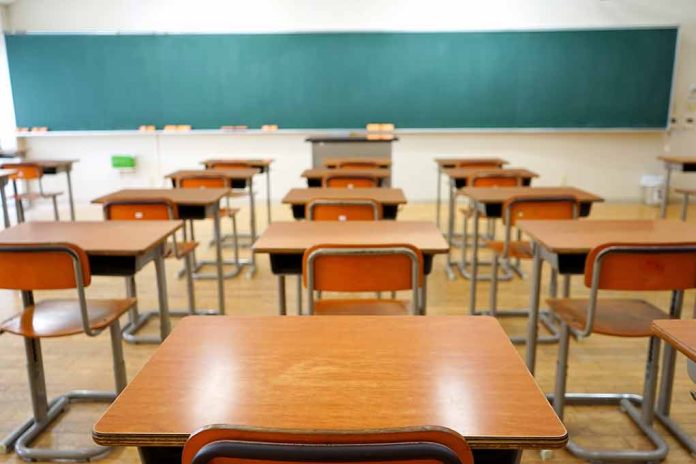
New Hampshire’s bold leap into universal school choice delivers a decisive blow to teachers unions and puts parents back in control of their children’s education.
Key Takeaways
- Governor Kelly Ayotte signed legislation making New Hampshire’s Education Freedom Accounts universal, eliminating previous income restrictions.
- Families will receive at least $4,265 per child for private or homeschooling expenses, with up to $9,676 available for children with special needs.
- New Hampshire becomes the 17th state to embrace universal school choice in just four years, but is the first Democrat-leaning state to do so.
- The program will begin in July 2025 with a 10,000-student cap that will increase by 25% each year if enrollment exceeds 90% of capacity.
- Critics from teachers unions and Democrat lawmakers object to the program, claiming it diverts funding from public schools.
Parents Gain Control as New Hampshire Embraces Educational Freedom
Governor Kelly Ayotte has positioned New Hampshire at the forefront of the educational freedom movement by signing legislation that removes income restrictions from the state’s Education Freedom Accounts program. The groundbreaking law, which takes effect in July 2025, allows all families regardless of income to access state education funds for private school tuition or homeschooling expenses. This expansion transforms a program that previously served less than half of New Hampshire students into a universal option that empowers parents with genuine educational choice.
“Giving parents the freedom to choose the education setting that best fits their child’s needs will help every student in our state reach their full potential. I’m proud to sign this into law today along with the Parental Bill of Rights, which ensures parents are the central voice in their children’s education. I thank the House and Senate for working to get these across the finish line,” Said Governor Kelly Ayotte.
Financial Impact and Program Structure
The expanded program provides significant financial support for families seeking educational alternatives. Participants will receive at least $4,265 per child, with additional funding available for students with special needs—up to $9,676 for those requiring the most support. To manage the transition, lawmakers have implemented a 10,000-student cap for the 2025-2026 school year, with provisions for 25% annual growth if demand remains high. This structured approach balances ambitious educational reform with fiscal responsibility.
“With the passage of this bill, we are now able to deliver universal school choice for all New Hampshire families,” Said Sen. Victoria Sullivan.
Growing Momentum Despite Democrat Opposition
New Hampshire’s decision marks a significant milestone as the first state that voted for Kamala Harris in the 2024 election to embrace universal school choice. This development demonstrates the bipartisan appeal of educational freedom despite fierce resistance from teachers unions and Democrat lawmakers. The state joins 16 others that have passed similar legislation since 2021, with Arizona leading the way in 2022 by offering approximately $7,000 per student for educational expenses.
“New Hampshire is the 17th state to pass universal school choice in the past four years. The wind is at our backs and the momentum for education freedom is unstoppable. We have a state that went for Kamala Harris in November now going all-in on school choice. Putting parents in the driver’s seat should be a nonpartisan issue – kids don’t belong to the government – but the Democrat Party is a wholly owned subsidiary of the teachers unions,” Said Corey DeAngelis, a senior fellow at the American Culture Project.
Opposition Claims Wealthy Will Benefit Most
Democrats and teachers unions have voiced strong opposition to the universal program, arguing it will divert essential funding from public schools and primarily benefit affluent families who can already afford private education. Critics claim the expanded program represents a taxpayer subsidy for the wealthy rather than targeted support for disadvantaged students. These concerns echo similar objections raised in other states that have implemented universal school choice programs, though supporters counter that all families deserve educational options regardless of income.
“Get out your wallets folks. Wealthy people want subsidies from taxpayers like you to send their kids to private schools,” Said Rep. David Meuse.
COVID School Closures Fueled School Choice Movement
Education freedom advocates attribute the rapid expansion of school choice programs nationwide to parental frustration with public schools during the COVID-19 pandemic. The extended school closures and remote learning failures exposed the outsized influence of teachers unions in educational policy decisions, driving many families to seek alternatives. This experience fundamentally shifted public opinion on the need for educational options and parental control, creating unprecedented momentum for school choice legislation across the country.
“The teachers unions really stepped in it by fighting to keep schools closed during the COVID era,” Said Corey DeAngelis.




